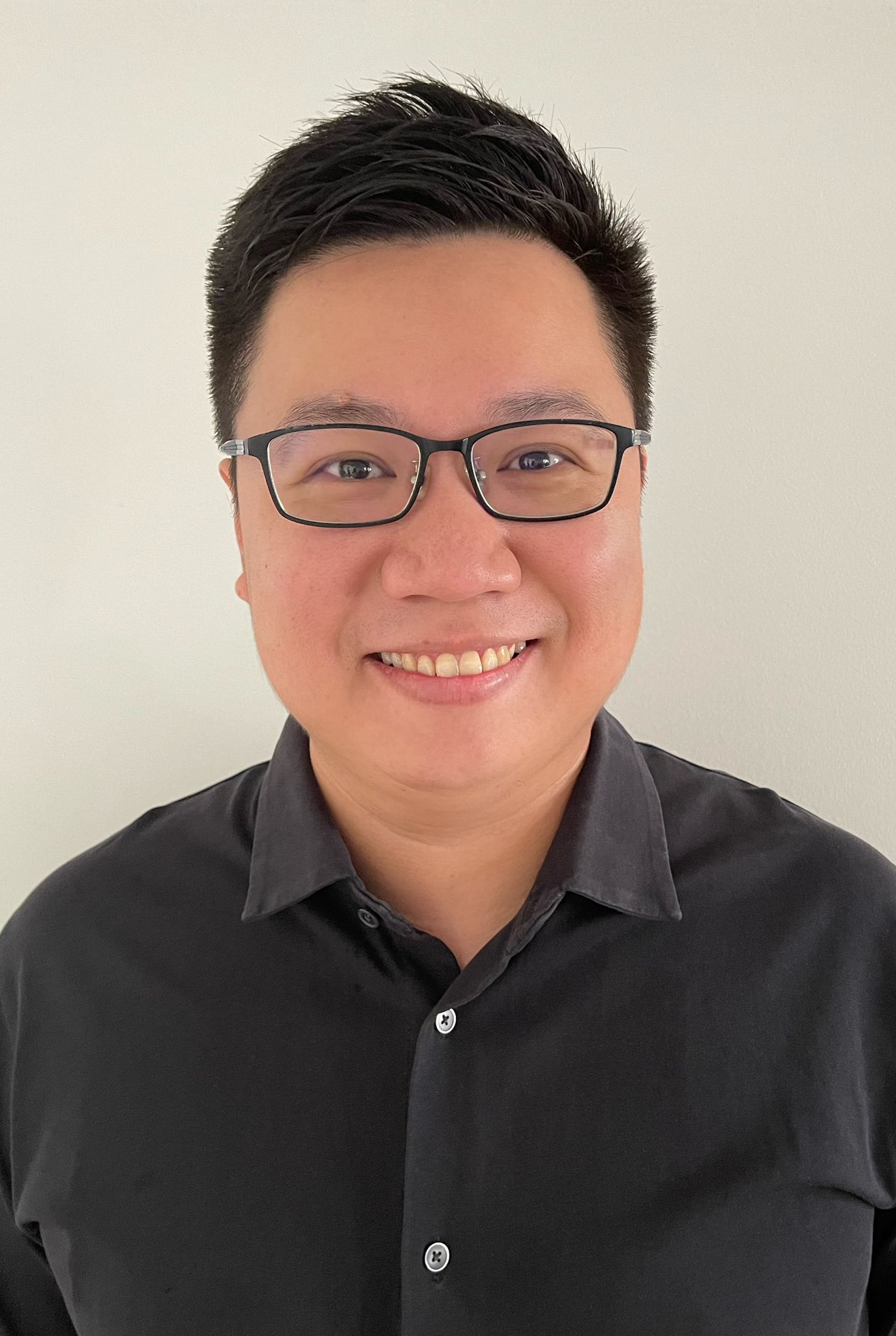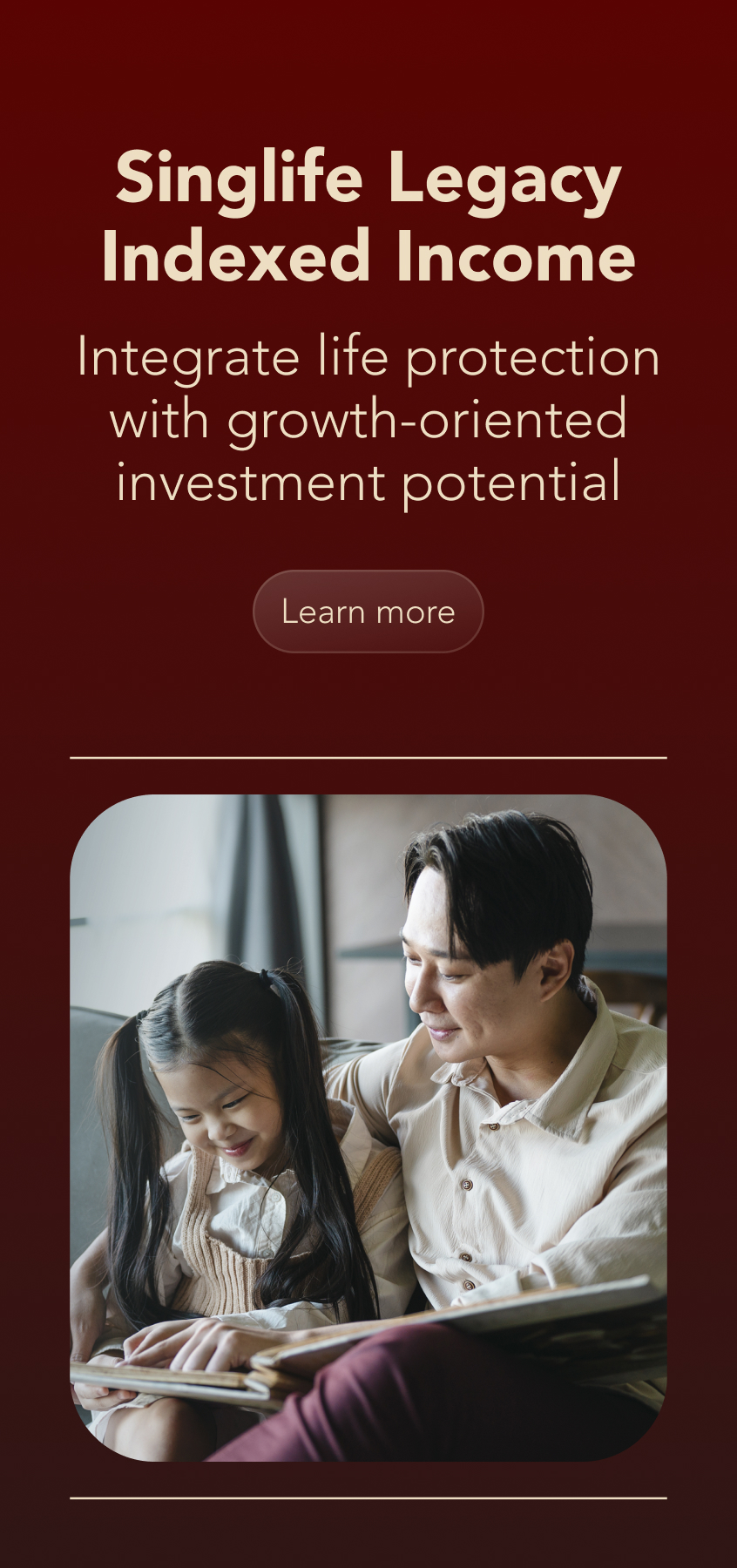A full-time math tutor who, even at the age of 57, enjoyed running long distances, Quek Ee Meng could easily have been described as someone with an active mind and body. Outwardly, everything seemed good. However, something inside him was changing. He began experiencing memory loss and becoming more forgetful and, at times, he was unable to follow instructions. He also wasn’t able to communicate as well as before.
“I started having difficulty finding the correct words to express myself,” he says.
His wife persuaded him to seek medical help and in June 2023, he was diagnosed with young-onset Alzheimer’s disease, which is a type of dementia. Young-onset dementia is dementia that develops in people younger than 65 years old, and it can affect people as young as 40 years old.1 More than 100 individuals are diagnosed with young-onset dementia in Singapore every year.2
Ee Meng was also diagnosed with aphasia, a speech and language impairment, which is a common symptom of early-stage Alzheimer’s disease and other types of dementia.
The news changed their lives forever.
Initial response to the diagnosis: Why?
According to Sion Teng, Senior Programme Executive, Caregiver Support Services at Dementia Singapore, learning that one has dementia can be an overwhelming experience, from receiving a formal diagnosis to worrying about being a burden to their loved ones, or even the judgement that they feel they may get from family, friends or society.
He says, “Many things will be running through their heads, especially if they are in the mild stage of the diagnosis and still with good cognitive functioning and awareness. Many would be in state of disbelief, and it is not uncommon to witness patients becoming agitated, refusing to accept the diagnosis or insisting that they have been misdiagnosed. They may even get upset with their caregivers for bringing them to a doctor in the first place.”
News of Ee Meng’s diagnosis took him on an emotional rollercoaster ride. “I was sad, lost and depressed,” he recalls, a year after that day the doctor broke the news.
For Ee Meng’s wife, Alice Tan, 56, it confirmed her earlier suspicion that something was amiss. Back in November 2022, more than six months before the diagnosis, she had already noticed changes in her husband.
Explaining how things developed, she says, “He became very quiet and could not speak fluently. A GP we saw found nothing wrong with him. Subsequently, we visited a polyclinic and were referred to Khoo Teck Puat Hospital. Tests and a brain MRI scan showed that his brain had shrunk.”
Her initial thought when the doctor diagnosed it as Alzheimer’s disease was, “Why him, at this young age?”
The mother of two who’s a part-time math tutor was baffled and had many questions about Alzheimer’s disease and aphasia. “I was also worried about my family’s future, especially our financial future. I cried and had sleepless nights,” she recalls.
Learning that she would soon need to stop working to take care of Ee Meng amplified her concerns. “My son was still in university and my parents were in a nursing home. I could not possibly depend on my daughter, who had just started working, to support the whole family.”


Younger individuals hit harder
The impact of a dementia diagnosis is often greater on those below the age of 65 because a common misconception is that dementia only affects older individuals who are above 65 years. As Sion explains, “Many would still be part of the workforce and fear the financial strains on the family given the potential loss of income.”
Coming to terms with the news: “I know I’m not alone”
Having a close family member to confide in greatly helped with facing the medical diagnosis and deciding how to approach the days ahead. As Ee Meng says, “My wife advised me to accept the reality since it cannot be changed. The priority is to enjoy life.”
Being in a supportive community and being open to participate in various programmes tailored for persons living with dementia (PLWDs) has been instrumental in helping both Ee Meng and Alice accept the diagnosis and move forward. They are recent graduates of Dementia Singapore’s Voices for Hope self-advocacy programme, which equips PLWDs and their care partners with relevant skills and encourages them to actively share their experiences, needs and views publicly in order to build a more dementia-inclusive society.
Ee Meng says, “Programmes like Voices for Hope and the NNICE programme at Tan Tock Seng Hospital have helped me to see that I am not alone.”
He’s also been attending various other activities by Dementia Singapore and other organisations to keep himself active physically and mentally. “I may not be as efficient as in the past, but I like to try,” says Ee Meng, who continues to run daily, albeit a distance of six kilometres which is much shorter than what he used to cover previously.
Seeing how others in similar shoes can lead a fulfilling life and take charge of their situation can be inspiring. Hearing kind words also boosts his morale, as Ee Meng says: “Other people living with dementia and their care partners have commended me for my effort and offered words of encouragement.”
On and off, I crack jokes or ask him questions like “Do you love me?”. Seeing him laugh brightens me up.
- Alice Tan, 56
Alice observes that the programmes have helped both her husband and her: “Through the Voices for Hope programme under Steven Lew, Ee Meng has become more accepting of and open about his conditions. Meanwhile, I’ve learned more about Alzheimer’s disease.
“We also attend weekly activities with the Young Onset Social Club. I learn a lot from the sharing by other care partners.”
Journeying through life as a person with dementia
More than a year since Alzheimer’s disease and aphasia began affecting him, Ee Meng shares that he now also chokes frequently and trips over things more easily – due to difficulty with balance and judging distances. Loss of strength is another noticeable change. While Alzheimer’s disease most prominently affects the memory and is linked to cognitive deficit, it is also associated with non-cognitive symptoms like reduced muscle strength.
“It’s been a difficult journey, but I’ve learnt to adapt, enjoy the activities by various organisations and make new friends,” he says.
Meanwhile, Alice has had much to learn and figure out, especially at the start, as she was in unchartered territory. “There were a few unpleasant surprises involving cleaning which shocked me, but I later understood from other care partners that these are to be expected,” she shares.
As tough as things can sometimes get, she continues to be a constant pillar of support for Ee Meng, seeking out new programmes and activities which she brings him to. These include programmes by Aphasia Singapore, various community centres, Voices of Singapore and St Luke’s Hospital. Ee Meng is also on waiting lists for others.


Engaging in activities with others, both in person and online, is a chance to interact with others and it puts my brain to work.”
- Quek Ee Meng, 58
Alice believes involving him in more activities will slow down the deterioration of Alzheimer’s disease. “I always ask him if he is keen on an activity before I engage him. When he enjoys it, I will too,” she says.
Ee Meng adds, “My wife also pushes me to do extra activities like sudoku, copying paragraphs of text and doing speech practice.”
Biggest fears
As anyone who’s ever been a long-term care partner would know, being a care partner to a loved one can be immensely stressful. In Alice’s case, it’s not unusual for alarm bells to go off, especially when she can’t find Ee Meng where he’s supposed to be. She says, “I panic when he doesn’t answer my call. And even when he does, he cannot describe clearly where he is. My biggest fear is not being able to reach him when he needs me.”
Acknowledging the challenges other care partners face, she has this message for them: “You are not alone. Be open to accepting and adapting to this new life. Of course, there will sometimes be unpleasant moments, but they will pass. When you look back, these are nothing compared to living happily with your loved ones.”


“No one chooses to have dementia, so please be kind to them as they have feelings just like you.”
- Alice Tan, 56
Meanwhile, Ee Meng’s biggest fear is how his loss of earning power will affect his family. “It also affects my wife’s earning capacity as she needs to spend more time with me. Fortunately, my siblings provide some financial help,” Ee Meng.
Alice, too, is grateful for this aid from family members as it means she doesn’t have to worry as much about money and can focus better on taking care of her husband. To further reduce her financial stress, she is now more prudent when spending and has begun learning how to invest and grow her money.
Other hurdles the couple have had to face because of Ee Meng’s health situation include over-caring by well-meaning extended family, which resulted in some conflicts between them. “Nevertheless, we all know that we love and care for Ee Meng,” says Alice.
The road ahead
When asked about his hopes for the future, Ee Meng’s answer is simple. “I hope to maintain my mobility and functionality. And I hope to be able to travel overseas for leisure,” he says.
Meanwhile, Alice says, “I just hope Ee Meng’s condition does not deteriorate fast. Of course, I hope he can improve but I am contented with him maintaining his current state. I want him to live happily and to create new memories with him.”
As Ee Meng has demonstrated, we can’t control a health diagnosis, but we can continue to take control of our lives and spend our days meaningfully, on our own terms. To anyone who’s struggling with a dementia diagnosis, he offers some advice and words of encouragement: “You and your care partner must accept your condition. You are not alone as there are others similar to you. Look for programmes that can help you understand more about dementia. Make new friends and enjoy the activities with your partner as you start your new life.”
Tips for coping with a dementia diagnosis
Sion Teng from Dementia Singapore shares practical advice for PLWDs and care partners.
Watch for depression and anxiety after a dementia diagnosis.
We have observed individuals who become depressed and withdrawn over the news, especially after learning that there currently isn’t a cure for dementia. Also, people diagnosed with dementia may become regularly anxious, as their poor short-term memory may lead to disorientation of the environment, time and space they are in. They may also worry about how others would react to them, or perceive themselves as a burden.
Having trusted friends and family members patiently accompany them to venture out of their worried, anxious state is crucial to their chances of leading a normalised life.


Rising beyond the diagnosis
Dementia Singapore’s Sion Tan says that some PLWDs have become advocates who encourage other PLWDs, and educate the public on dementia and how to support PLWDs.
Caregivers need time to accept a diagnosis too.
Most caregivers tend worry about future uncertainties. Some may have to consider leaving their full-time job to carry out caregiving duties while others might have to re-evaluate their retirement plans. They may fear facing financial challenges and planning for the needs of their loved ones diagnosed with dementia. Some may feel paralysed to make decisions, even when offered solutions by healthcare professionals.
Perhaps more concerning are caregivers who may challenge the doctor’s diagnosis or feel nonchalant about it, especially if their loved ones are still generally well-functioning, save for memory problems, which are often an expected part of ageing. Inaction doesn’t help the individual.
For others, the official diagnosis can motivate them to attain relevant resources and support to care for their loved ones with dementia.
There’s no cure for dementia but patients aren’t powerless against it.
Certain medications (i.e., donepezil) can help manage some symptoms and potentially slow down the progression of dementia. Adopting a healthy lifestyle can also help to manage symptoms and potentially slow down cognitive decline. Additionally, a strong support network may also provide practical assistance and emotional support to PLWDs throughout their journey.
Despite having cognitive impairment, persons with dementia can still lead a fulfilling life on their own terms. Family members and the community can afford PLWDs this opportunity through good listening skills and empathetic conversation that reminds them that they are loved, and that they have an important role in the family and community. It can also allay any fears of being “a burden”.
For instance, a PLWD who’s a homemaker can still engage in simple cooking; they can also guide the caregiver or family members in cooking some dishes. There is also value in PLWDs sharing their life stories with their grandchildren or healthcare workers.
As memories and physical function deteriorate, PLWDs can still be empowered to participate. Caregivers can involve them in parts of the task that they can still do instead of prohibiting them altogether.
It is okay not to be okay.
For both caregivers and patients, it is okay to grief over the diagnosis. Allow yourself time for the diagnosis to sink in and gradually evaluate your options moving forward. Speak to someone you trust to process this next stage of life events.
Caregivers need to know that caregiving is a journey and it’s normal to feel exhausted. There’s no perfect caregiver, perfect day, or perfect way to support your loved one. There are a lot of trials and errors, and it takes time and understanding to know what works for your loved one at an interim period. Joining a support group and speaking with other caregivers can give you further insights. Don’t ignore the importance of self-care.
Make important plans while you can.
PLWDs, especially at the early stage of dementia, should consider making a Lasting Power of Attorney and Advance Care Plan. Not only can these support caregivers, they also give PLWDs control over and a say in their future needs and wants (eg. whether or not they want to stay in a nursing home or seek comfort care at the later stage).
Minimise the risk of falls and accidents home.
PLWDs tend to also experience visual impairment with age. When coupled with cognitive impairment, it can increase the risk of accidents and falls, which could be physically and mentally detrimental. So, it’s essential to take steps to minimise this risk, especially around the home by ensuring sufficient colour contrast especially with steps and doors, choosing chairs with armrests for support, reducing clutter on tables and along walkways to reduce distraction.
If a PLWD still cooks, someone else should support and oversee the process for safety reasons, and it’s worth considering an induction cooker instead of a gas operated one, as they may forget to turn off the stove.
Notes:
1. Source: Dementia Singapore, “Dementia in Singapore”, accessed on 19 April 2024.
2. Source: Dementia Singapore, “What is young-onset dementia?”, accessed on 19 April 2024.








